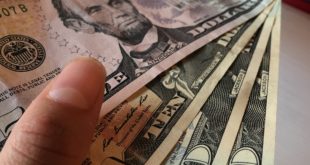There is much made about how much teams ask of taxpayers in the cities that they are in. While the owners are millionaires or billionaires, they still ask the city where they play to put up money to help build a stadium or ask to split revenues from the stadium others have paid for. However, professional teams are still in high demand because of what they do for the local economy. What are some of the specific impacts?
The City Gets a Boost in Prestige
In general, a city that has a professional team is thought higher of then cities that don’t have sports teams. In some cases, the sports teams may be one of the few attractions of the area. For instance, without the Sabres or the Bills, Buffalo is just another city in upstate New York. Without the Packers, Green Bay is just another small city in the middle of the country.
Stadiums Can Often Be Used for Many Purposes
While a stadium may be built specifically for a baseball team or a basketball team, those stadiums aren’t used throughout the year. If a team plays in the NFL, it may only be used for 10 dates the entire year when you include preseason and regular season games. When the stadiums aren’t be used by their main tenants, they can be used to host conventions, concerts and other large events. They may also be used to lure major events such as the Olympics or other national or regional competitions.
Bars and Restaurants Near the Stadium Make Money on Game Day
In more urban areas, it may not be possible to tailgate in the stadium parking lot before the game. This means that people have to grab a beer or dinner before the game at a bar or restaurant near the stadium or arena. After the game, those same people may decide to stick around for another drink or to kill time before they are good enough to drive home. For those who work at these establishments, they may see more tips while the business owners will see increased revenues. The city benefits because they see more tax revenue from the businesses that make that money.
The Team May Create Hundreds of Jobs
When a team comes to town, they will have a wide variety of positions that need to be filled. For example, someone will be needed to take tickets, sell hot dogs or park cars in a proper manner. There will also be a need for people in the sales and marketing departments as well as security personnel to keep people safe during the game or during any other event at the stadium or arena.
The Team May Spur Employment in Other Ways as Well
Before a new team can start play, it will need a new stadium or upgrades to a current stadium. That means construction jobs that pay well and will last for several months or years. Employers around the stadium will also need to hire more workers during the season as more people come to shop, eat or otherwise spend money in town. If a town has a casino or is otherwise known as a gambling town, people may decide to spend money as an alternate to sports betting sites or in addition to bets made online.
If your city is about to get a new professional sports team, it may be something to celebrate whether you are a fan or not. In a worst case scenario, you may be able to find a job, benefit from increased public services or feel better about living in a city that is known on a national level thanks to money derived from that team.
If you enjoy the content at iBankCoin, please follow us on Twitter





Ugh. This is regurgitated PR posing as economics.
There is a very high consensus among real economists that sports stadiums generate a poor or even negative return on the public subsidies provided to get new stadiums established.
Before listing some of the many articles describing the results of research on actual stadium impacts, I will respond briefly to your bolded points.
The City Gets a Boost in Prestige
You cite Green Bay, WI, and Buffalo, NY, in support of this. I cite the same two cities in opposition. Instead of being little-known cities, they are widely known as cities that offer nothing of interest beyond an NFL franchise.
Stadiums Can Often Be Used for Many Purposes
Yes, but a facility optimized for the other 350+ (for NFL) days of the year would cost a lot less than a football stadium does and would be a more attractive venue for many of the non-NFL purposes.
Bars and Restaurants Near the Stadium Make Money on Game Day
Economists find that most such spending is simply shifted from other locations and activities. On the weekends when there is no home game, the fans go to sports bars and restaurants and movies throughout a city instead of in the area around the stadium.
The Team May Create Hundreds of Jobs
The number of full-time, year-round jobs is small — especially when you consider opportunity cost. A city that has provided hundreds of millions of dollars to help get a stadium build could have spent the same amount in other ways that could have created far more jobs.
The Team May Spur Employment in Other Ways as Well
Construction employment is nice, but just a blip on the calendar for a facility financed with 20-30 year bonds. Economists have examined the claims of “other employment” by using data such as sales tax revenue and changes in real per-capita personal income. These studies find any impact to be far, far below what the sports franchises were claiming prior to construction.